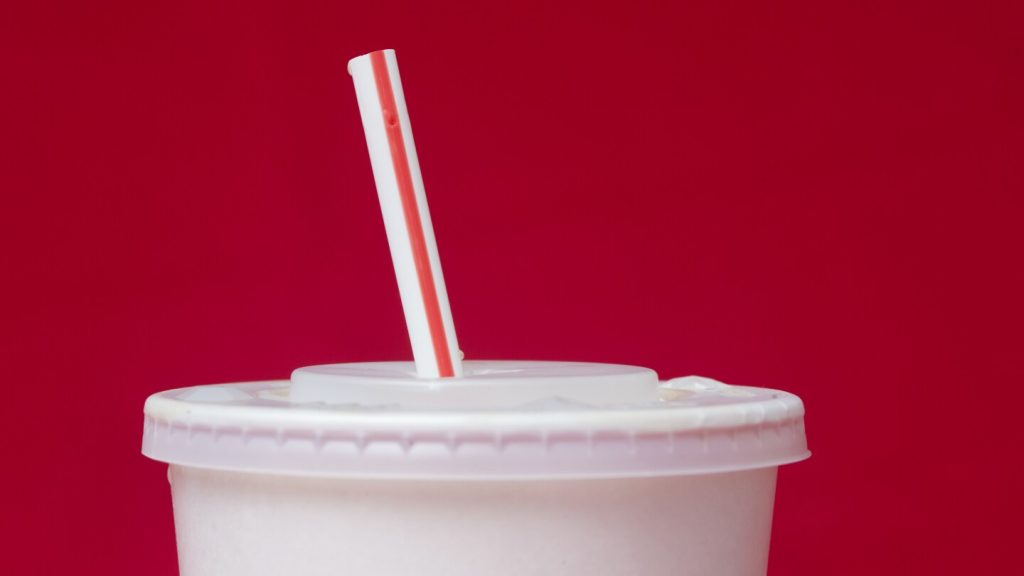Trump’s Executive Order: A Shift Back to Plastic Straws
In a move that has sparked widespread debate, President Donald Trump announced an executive order reversing federal purchasing policies that promoted the use of paper straws and restricted plastic ones. Trump, who has long criticized paper straws as ineffective and short-lived, declared that the government would now exclusively use plastic straws. This decision comes as a direct response to a Biden administration policy aimed at phasing out single-use plastics, including straws, by 2035. Trump’s order mandates federal agencies to stop purchasing paper straws and ensures that they are no longer provided in agency buildings. During the announcement, Trump referred to the situation as “ridiculous” and stated, “It’s a ridiculous situation. We’re going back to plastic straws.”
The Biden Policy and Trump’s Reversal
The Biden administration had introduced a policy to reduce federal reliance on single-use plastics, with the goal of eliminating them from food service operations, events, and packaging by 2027 and from all federal operations by 2035. Trump, however, has consistently criticized this approach, calling it “DEAD!” in a recent social media post. His 2019 reelection campaign had even sold Trump-branded reusable plastic straws for $15 per pack, further highlighting his opposition to paper straws. The reversal of the Biden policy is seen by many as a symbolic move to roll back environmental regulations and prioritize convenience over sustainability.
Environmental Concerns and Plastic Pollution
Despite Trump’s dismissal of the environmental impact of plastic straws, the issue of plastic pollution remains a critical global concern. Plastic straws are just one part of a much larger problem, as single-use plastics, including water bottles, takeout containers, coffee lids, and shopping bags, continue to flood the environment. Experts estimate that the equivalent of one garbage truck full of plastic enters the world’s oceans every minute, contributing to the deaths of marine life and the breakdown of ecosystems. As plastic materials decompose, they release microplastics that have been found in the stomachs of fish, birds, and even in human blood and tissue.
The production of plastic also has significant environmental costs, as it releases greenhouse gases and other harmful pollutants. Over 90% of plastic products are derived from fossil fuels, and millions of tons of plastic waste end up in the world’s oceans every year. While many multinational companies have shifted away from plastic straws and prioritized reducing plastic use in their operations, Trump’s decision places the U.S. at odds with global sustainability trends. Environmental groups have criticized the move, with Christy Leavitt, plastics campaign director for Oceana, stating that Trump is “moving in the wrong direction on single-use plastics” and that the world cannot afford to ignore the plastic pollution crisis.
Industry Reactions and Public Opinion
The plastic manufacturing industry has welcomed Trump’s decision, with Matt Seaholm, president and CEO of the Plastics Industry Association, referring to the shift as a “movement we should all get behind.” Straws, Seaholm argued, are just the beginning of a broader push to increase plastic use. However, this stance aligns the industry and the Trump administration with a minority view, as public opinion increasingly favors reducing single-use plastics. Advocacy groups, such as the Straws Turtle Island Restoration Network, have highlighted the dangers of plastic straws, noting that over 390 million straws are used daily in the U.S., with each straw taking at least 200 years to decompose. These groups argue that reducing plastic use is essential to protect marine life and address the broader environmental crisis.
The Broader Implications of Trump’s Decision
Trump’s executive order has been interpreted by many as a political maneuver rather than a genuine attempt to address environmental issues. The shift back to plastic straws is seen as part of a larger effort to dismantle Biden-era environmental policies and appeal to Trump’s base. However, the decision also raises questions about the U.S.’s role in global efforts to combat plastic pollution. International leaders are currently negotiating a treaty to address the production, disposal, and recycling of plastics, with over 100 countries pushing for a pact that limits plastic production. The U.S., along with China and Germany, is one of the largest players in the global plastics trade, and Trump’s decision may complicate these negotiations.
Ultimately, Trump’s move to ban paper straws and promote plastic use highlights the ongoing tension between environmental sustainability and political priorities. While the shift may satisfy some critics of paper straws, it has drawn sharp criticism from environmental groups and underscores the challenges of addressing global plastic pollution in a politically divided landscape. As the world grapples with the environmental and health impacts of plastic, Trump’s decision serves as a reminder of the hurdles that must be overcome to achieve meaningful progress.












